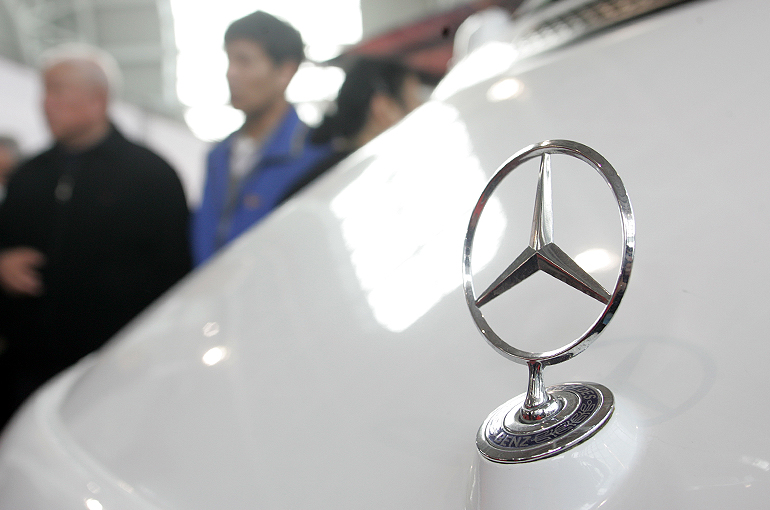 Daimler’s China JV to Launch 15 New Models This Year to Speed Up Electrification, CEO Says
Daimler’s China JV to Launch 15 New Models This Year to Speed Up Electrification, CEO Says(Yicai) Jan. 24 -- German auto giant Daimler plans to introduce 15 brand-new and new-generation models this year to accelerate its electrification strategy, according to its chief executive officer of the joint venture in China .
Beijing Mercedes-Benz Sales Service will release the new generation of the Mercedes-Benz EQS pure electric sports utility vehicle and Mercedes-Benz EQA electric luxury crossover, the new pure electric versions of the Mercedes-Benz G series, and other models built on its 800-volt high-voltage MMA platform, Duan Jianjun said at a conference on Jan. 22.
All the new models built on its MMA platform this year will be produced in China from next year, Duan noted, adding that Mercedes-Benz will continue its strategy of focusing both on fossil fuel-powered and electric cars by starting to electrify all its products and upgrading the fuel ones.
“The continuous economic recovery and rapid development of intelligentization technologies have accelerated the growth momentum of the Chinese EV industry,” Dun pointed out. “However, the growth rate is narrowing as more players enter the market, so industry leaders are receiving more market attention,” he said, noting that this will bring more structural changes to the industry.
In the past two years, Mercedes-Benz has been facing more pressure from Chinese new energy vehicle startups than from its historic rivals BMW and Audi. Li Auto’s Chairman and CEO Li Xiang said that he is confident the Chinese NEV startup will outperform Mercedes-Benz, BMW, and Audi in the Chinese market this year.
Traditional luxury carmakers, including Mercedes-Benz, BMW, and Audi, will face even more pressure from Chinese electric vehicle manufacturers when the latter accelerate their business positioning in the market segment for vehicles priced above CNY500,000 (USD69,900), according to a report jointly released by Chinese auto information service provider Dongchedi and the National Big Data Alliance of New Energy Vehicles.
Mercedes-Benz sales in China remained almost unchanged at 765,000 units last year from the year before, mainly because of the auto parts and component shortage and product revamps.
Editor: Futura Costaglione